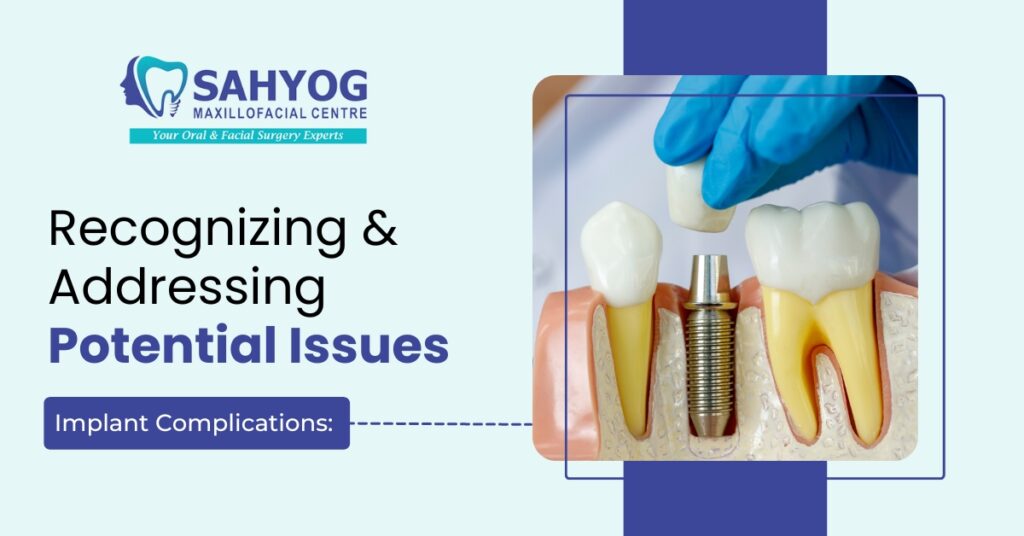Dental implant, while a transformative solution for missing teeth, can sometimes encounter complications that patients should be aware of.
Exploring these potential issues aids in better preparation and timely management for successful implant procedures.
1. Decoding Implant Complications
Implant complications encompass various challenges that can affect the success and longevity of dental implants. Infections and inflammatory reactions post-implantation pose considerable risks. Bacterial colonization in the dental implant area can lead to infections, triggering inflammatory responses that compromise the healing process. Patients must adhere to strict oral care routines, including regular brushing, flossing, and antimicrobial rinses, to minimize bacterial activity and maintain optimal oral health.
Another critical aspect is the risk of implant failure and challenges related to osseointegration, the process by which the implant integrates with the surrounding bone. Factors such as poor bone quality, improper implant placement, or inadequate osseointegration can lead to implant instability or failure. Thorough diagnostics, including comprehensive imaging techniques like CT scans, facilitate a detailed assessment of bone quality and structure. This information guides precise treatment planning, ensuring suitable implant placement that maximizes bone contact and enhances osseointegration. Moreover, advancements in implant surface technology and modifications in surgical techniques contribute to improving osseointegration outcomes.
2. Nerve Damage and Soft Tissue Complications
Nerve damage and soft tissue complications represent significant concerns in the realm of dental implantology. The delicate nature of nerve placement in proximity to implant sites requires careful attention during the surgical process. While uncommon, nerve damage can occur, leading to temporary or, in rare instances, permanent sensations like tingling, numbness, or altered feeling in the surrounding areas. Soft tissue complications, including gum recession or inflammation, can also arise post-implantation, affecting both the aesthetics and function of the implant.
3. Mechanical Complications and Prosthetic Failures
Mechanical complications and prosthetic failures are crucial aspects to consider in dental implantology, primarily revolving around issues with prosthetic components such as screws and abutments. These complications often manifest as loosening or fracturing of these components, leading to instability or malfunction of the implant. Regular checks and maintenance play a pivotal role in preventing and addressing these mechanical issues.
Aesthetic concerns and functional challenges further add to the complexity of implant procedures. Discoloration, misalignment, or an unnatural appearance of the implant can affect a patient’s confidence and satisfaction. Similarly, functional challenges, such as difficulties in chewing or speaking due to implant-related issues, significantly impact daily life. Addressing these concerns involves a comprehensive approach that not only focuses on the technical aspects but also considers the patient’s aesthetic preferences and functional needs.
In the context of dental tourism in India, where individuals often seek quality dental treatments at competitive costs, ensuring that these comprehensive aspects are addressed contributes significantly to the overall satisfaction and success of the dental implant procedure. This holistic approach aligns with the expectations of international patients availing dental services in India, fostering trust and confidence in the treatment outcomes
Conclusion
In conclusion, understanding potential complications associated with dental implants empowers patients to take proactive measures. Emphasizing the significance of thorough diagnostics, proper oral hygiene, regular check-ups, and professional care plays a pivotal role in mitigating risks and ensuring successful implant procedures.
By recognizing these potential complications and being vigilant about oral health, patients pave the way for successful implant journeys, enjoying the long-term benefits of restored functionality and aesthetics.

